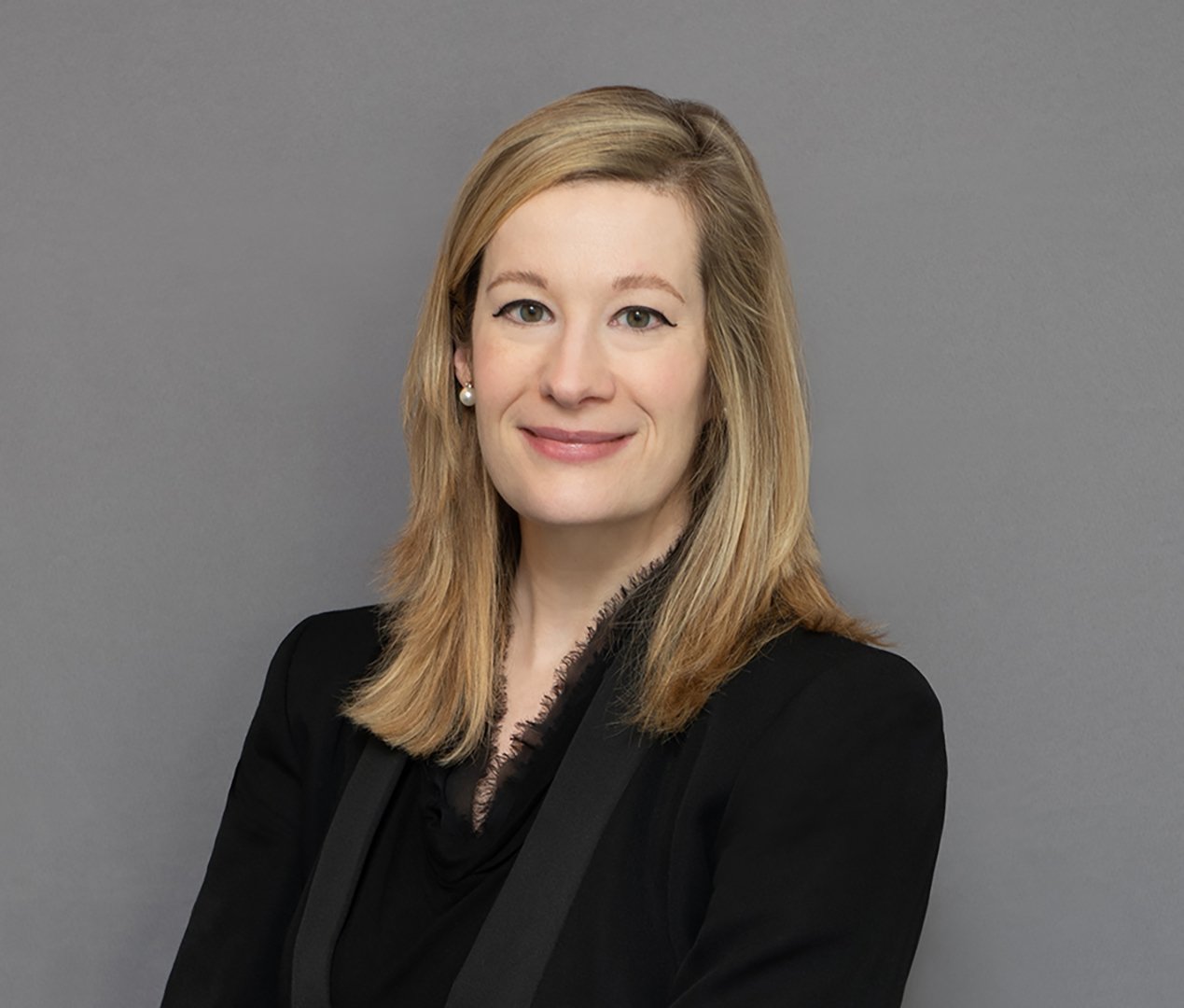Leadership and the Law: How Law Firms Can Fix a Puzzling Quirk
There's a need for greater investment in law firm leadership training, argues Cohen Milstein partner Betsy Miller.
May 28, 2020 at 12:34 PM
6 minute read

Editor's note: This is the first in a series of articles by Cohen Milstein partner and leadership coach Betsy Miller on cultivating leadership in the law.
The success of the legal profession depends on the talent of its people, yet its investment in that talent is alarmingly incomplete. The COVID-19 pandemic has created a need for leadership that is both immediate and requires ongoing investment.
Law firms focus heavily on developing such foundational legal skills as oral advocacy, depositions and brief-writing. With the support of early training followed by years of practice, senior attorneys master the craft of lawyering but arrive underprepared for the next career phase: a very different set of responsibilities associated with leading teams, legal departments and entire firms. Yet, we expect lawyers to make this transition without teaching—or valuing—how to do it well.
As students, lawyers are trained to expose flaws in an adversary's logic and deliver crisp answers to complicated questions. As practitioners, our success requires those skills, plus winning cases and generating business. Conspicuously absent is training on team dynamics, listening skills and other core competencies of leadership. A lot of law firms fail to adopt many of the basic talent management principles, which operates to their detriment, as a 2012 Harvard Business Review piece noted.
A system's incentives dictate its culture, so it should be no surprise that lawyers, who are compensated by the hour or paid on contingency to deliver successful outcomes, have little reason to focus on developing their leadership capacity. Doing so takes time, practice and organizational support. As Harvard Law School's David Wilkins rightly cautions in a 2014 essay published by that school's Center on the Legal Profession, "[t]he compensation system must evaluate and measure the 'whole partner.'" Metrics that fail to create financial incentives for emotional intelligence, an ability to guide teams through a crisis, and mentoring the next generation make a shortsighted mistake with a long-lasting impact.
COVID-19: An Opportunity Wrapped in a Wake-Up Call
A reckoning is underway. The profession has been at a crossroads for some time, faced with women and minorities leaving the practice of law—especially Big Law—in disproportionate numbers, and a growing culture gap between the millennial generation (anyone born between 1981 and 1997) and the old guard (the rest of us). Governance models for law firms and in-house legal departments need to evolve more rapidly than ever to adapt to the uncertain and continuously changing dynamics created by the COVID-19 crisis. If we respond to this challenge by building capacity, we will fare much better than if we simply react to it.
Now more than ever, we should identify and develop the lawyers who are willing to invest in this challenge. These people are not hard to find. They are the ones who have demonstrated a commitment to growth and resilience, shown they value diverse perspectives, and have a track record for combining mission-oriented vision with exceptional execution. They might already be in senior positions of formal authority or they might be rising stars waiting to be recognized. They will not have homogenous backgrounds, yet they will share these key qualities: unapologetic curiosity for learning; dual capacity for action and reflection; and unwavering commitment to serving others, no matter their seniority or title.
The profession is facing demanding yet richly navigable tensions around stability and change, ambition and well-being, and short-term and long-term strategies—to name a few. To leverage these dynamics more nimbly than in the past, we must think differently about how to lead and who should share responsibility for that leadership.
The paradigm shift need not include a large financial investment. Leadership is a learnable craft, and there are many access points, including an abundance of wisdom and training generously being made available for free during the COVID-19 crisis by some of the foremost experts in this field. There are many cost-effective ways to initiate scalable leadership development, simply by sponsoring discussion groups around curated articles or books, encouraging participation in select webinars, and, budget permitting, by offering access to coaching.
A small financial investment will make a large culture difference if it is modeled by the people who control compensation and advancement decisions. Our most senior lawyers therefore play an important role at the heart of this change. If those in positions of power and influence show curiosity about developing their own capacity, and they value that trait in others, there will be immediate improvement in retention and career satisfaction, plus the added benefit of smoother transitions.
Cultivating leadership in the law — the next installment
This series will explore the most current thinking on leadership development and will apply it to pressing questions facing the legal profession. Upcoming articles will explore:
- Navigating polarities: identifying and leveraging benefits of opposing, but interdependent, preferences — such as stability and change;
- Facing adaptive challenges: using leadership as a vehicle for evolution by building the capacity to function through crisis, uncertainty and transition; and
- Feedback as a catalyst: for resilience, growth and high-functioning teams — when practiced skillfully by both giver and receiver.
There is an ancient quote made famous by martial arts master Bruce Lee: In times of crisis, "we do not rise to our expectations, we fall to the level of our training." There are no shortcuts for practice, and there is no incentive to practice until we value the investment. Leadership should be an inclusive call to service, developed broadly and deeply across an organization. Meeting the future successfully requires a culture change right now. The raw talent is here, and there is no time or reason to waste it.
Betsy Miller is co-chairwoman of Cohen Milstein Sellers & Toll's public client practice, an adjunct professor, author and speaker on leadership and change management. She holds certificates in leadership coaching and polarities management.
This content has been archived. It is available through our partners, LexisNexis® and Bloomberg Law.
To view this content, please continue to their sites.
Not a Lexis Subscriber?
Subscribe Now
Not a Bloomberg Law Subscriber?
Subscribe Now
NOT FOR REPRINT
© 2025 ALM Global, LLC, All Rights Reserved. Request academic re-use from www.copyright.com. All other uses, submit a request to [email protected]. For more information visit Asset & Logo Licensing.
You Might Like
View All
Wells Fargo and Bank of America Agree to Pay Combined $60 Million to Settle SEC Probe

'Lack of Independence' or 'Tethered to the Law'? Witnesses Speak on Bondi
4 minute read
Former Thomas Clerk Sarah Harris to Serve as Acting Solicitor General
Law Firms Mentioned
Trending Stories
Who Got The Work
J. Brugh Lower of Gibbons has entered an appearance for industrial equipment supplier Devco Corporation in a pending trademark infringement lawsuit. The suit, accusing the defendant of selling knock-off Graco products, was filed Dec. 18 in New Jersey District Court by Rivkin Radler on behalf of Graco Inc. and Graco Minnesota. The case, assigned to U.S. District Judge Zahid N. Quraishi, is 3:24-cv-11294, Graco Inc. et al v. Devco Corporation.
Who Got The Work
Rebecca Maller-Stein and Kent A. Yalowitz of Arnold & Porter Kaye Scholer have entered their appearances for Hanaco Venture Capital and its executives, Lior Prosor and David Frankel, in a pending securities lawsuit. The action, filed on Dec. 24 in New York Southern District Court by Zell, Aron & Co. on behalf of Goldeneye Advisors, accuses the defendants of negligently and fraudulently managing the plaintiff's $1 million investment. The case, assigned to U.S. District Judge Vernon S. Broderick, is 1:24-cv-09918, Goldeneye Advisors, LLC v. Hanaco Venture Capital, Ltd. et al.
Who Got The Work
Attorneys from A&O Shearman has stepped in as defense counsel for Toronto-Dominion Bank and other defendants in a pending securities class action. The suit, filed Dec. 11 in New York Southern District Court by Bleichmar Fonti & Auld, accuses the defendants of concealing the bank's 'pervasive' deficiencies in regards to its compliance with the Bank Secrecy Act and the quality of its anti-money laundering controls. The case, assigned to U.S. District Judge Arun Subramanian, is 1:24-cv-09445, Gonzalez v. The Toronto-Dominion Bank et al.
Who Got The Work
Crown Castle International, a Pennsylvania company providing shared communications infrastructure, has turned to Luke D. Wolf of Gordon Rees Scully Mansukhani to fend off a pending breach-of-contract lawsuit. The court action, filed Nov. 25 in Michigan Eastern District Court by Hooper Hathaway PC on behalf of The Town Residences LLC, accuses Crown Castle of failing to transfer approximately $30,000 in utility payments from T-Mobile in breach of a roof-top lease and assignment agreement. The case, assigned to U.S. District Judge Susan K. Declercq, is 2:24-cv-13131, The Town Residences LLC v. T-Mobile US, Inc. et al.
Who Got The Work
Wilfred P. Coronato and Daniel M. Schwartz of McCarter & English have stepped in as defense counsel to Electrolux Home Products Inc. in a pending product liability lawsuit. The court action, filed Nov. 26 in New York Eastern District Court by Poulos Lopiccolo PC and Nagel Rice LLP on behalf of David Stern, alleges that the defendant's refrigerators’ drawers and shelving repeatedly break and fall apart within months after purchase. The case, assigned to U.S. District Judge Joan M. Azrack, is 2:24-cv-08204, Stern v. Electrolux Home Products, Inc.
Featured Firms
Law Offices of Gary Martin Hays & Associates, P.C.
(470) 294-1674
Law Offices of Mark E. Salomone
(857) 444-6468
Smith & Hassler
(713) 739-1250











